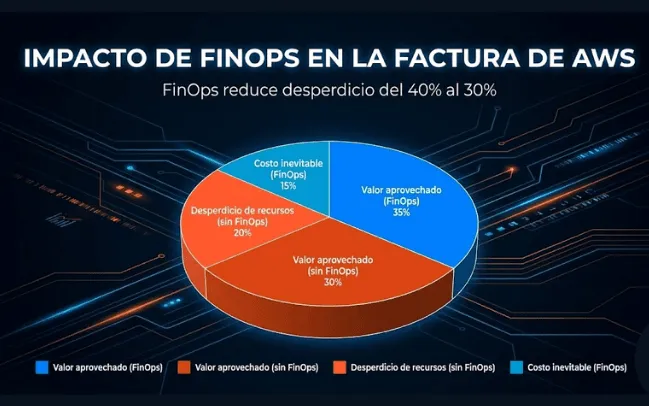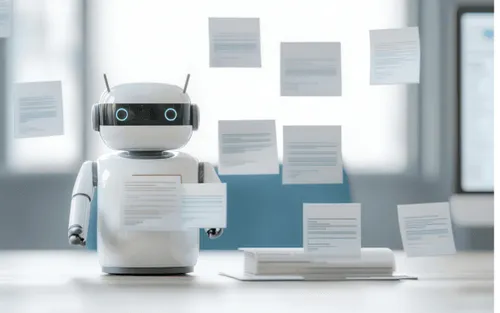The arrival of artificial intelligence in the development area has divided the labor market. On one side, there are programmers who prefer to stick with the traditional way of coding. On the other, there are those who decide to integrate AI tools into their work process and get an additional boost.
Traditional programming provides the foundation, but AI has become the main accelerator. Learn about the critical skills for each approach and the value they bring to the development cycle.
Traditional Programmer
A programmer who develops without AI has a deep knowledge of programming languages, logic, and clear code structure.
It is a person trained to write well-organized and readable code, but also capable of understanding and editing what another professional has done to improve it or fix existing problems.
We talk about a developer with a huge capacity to work in a team, maintain a positive attitude toward possible errors, and mainly interested in constantly updating their knowledge to adapt to new technologies and methodologies.
Work Scheme
A traditional programmer develops software starting from the analysis and understanding of the problem or requirement, followed by planning the code structure and writing it manually and in detail.
Then, they conduct tests to debug errors and ensure the program works correctly. This process includes creating interfaces up to business logic, and requires attention to efficiency, security, scalability, and software customization— aspects less likely to be automated by AI.
On the other hand, there will be moments when the developer must explain their work to investors, project managers, or product owners. This happens to provide project updates and ensure alignment between requirements and business goals.
In these moments, interaction with these figures requires empathy and communication that only humans can provide, adding a strategic, creative, and human component that artificial intelligence cannot replicate.
Impact on Business
Safer and More Reliable Solutions
Traditional programmers have extensive mastery of different programming languages. Beyond knowing what they do and when it is more convenient to use one over another, they perfectly understand their syntax, structures, and best practices.
This is key to building safer, more reliable, and faster applications. Having a wide range of tools makes it possible for our developers to always choose the best decision, guaranteeing security, stability, and integrity of any project.
Optimized Information Management
One of the critical pillars of any software project is data management. This is the basis of success for any initiative, especially if it involves systems that handle persistent information, such as:
- E-commerce websites.
- Social networks.
- Banking applications.
- Logistics systems.
Our programmers ensure the integrity of these systems through query optimization. This prevents system crashes and sales losses, even during peaks of users or requests.
On the other hand, the application of validation rules and prevention of data corruption ensure that customer information is reliable, which is essential for strategic decision-making.
Scalability Guarantees and Future Cost Reduction
Software design lays the foundation for product success. It is the skeleton that will support the entire platform to be developed and the main determinant of its flexibility and scalability according to your company’s growth.
Traditional programming stands out by using design patterns and work methodologies that promote smooth collaboration among teams and, mainly, deliver a system adaptable to market trends and changes in the target audience.
The programmer’s role at this stage translates into direct benefits for your business, such as:
- Minimization of future costs.
- Better integration with other platforms.
- Greater efficiency of the development team.
- Adaptability in the short, medium, and long term.
Our developers know better than anyone: a good software design is an investment that ensures longevity and product growth in the long term.
AI-Assisted Programmer
Since the advent of artificial intelligence, many programmers have integrated new tools that help them generate and test code, automate tests, perform debugging, among other tasks.
These programmers combine their theoretical knowledge with automated assistants that support different phases of development. These AI-based tools, such as GitHub Copilot, ChatGPT, or TabNine, suggest lines and blocks of code in real time, automatically complete functions, detect errors, and recommend improvements during writing.
In these scenarios, the programmer supervises the AI and adjusts its results according to the quality and functionality standards of their respective project. The result is a product aligned with technical requirements and business objectives in a shorter time frame.
Work Scheme
It all starts when the programmer inputs tasks or descriptions in natural language to the assistant, although they can also present a code snippet and order it to perform a specific action.
Then, the programmer receives an output. At this step, they review and modify the delivered code to ensure it is robust, readable, and secure. Finally, they test and document the process just as in traditional programming.
This approach significantly accelerates production and reduces time spent on repetitive or monotonous tasks, allowing the developer to focus on creative, architectural, and strategic aspects of the project.
Impact on Business
Faster Deliveries and Time-to-Market
One of the critical benefits of AI’s arrival in development is its way of speeding up production cycles, shortening the time-to-market of any product or service, and gaining a valuable edge over competitors.
Prompt engineering makes this possible. Our AI-assisted programmers know how to formulate the correct questions and commands to get what they need on the first try and avoid wasting valuable hours adjusting results.
Writing the most precise prompts translates into shorter innovation cycles, greater team efficiency, and more dedication to strategic tasks or those most critical for your organization’s growth and evolution.
Process Automation
AI-assisted programmers do not deal with repetitive or monotonous tasks. Instead, they focus on more complex tasks that require more human and specialized dedication. This is thanks to automation.
Automating processes is a smart investment for any business interested in staying competitive. Delegating certain responsibilities to AI has ceased to be a risk and has become a standard among companies that lead their respective sectors.
Our developers focus on what really matters by creating scripts and autonomous systems responsible for managing code, running tests, debugging, and deployments in just a few minutes.
The result is minimization of human errors, increased operational efficiency, and, mainly, a development team dedicated to strategic activities with greater impact on creating new functions and innovation.
Smarter Products Centered on Needs
AI-assisted programmers are well informed in natural language processing (NLP), a branch that offers a great opportunity to differentiate your product in the market and generate memorable experiences.
Applications that understand and respond to human language naturally improve the customer experience and strengthen their relationship with the brand thanks to a frictionless process where user needs are at the center.
By using NLP, digital products become more accessible and easy to use, two aspects that drive prospect acquisition, customer retention, and satisfaction for both equally.
It is a critical skill for analyzing large volumes of data to obtain valuable insights, which facilitates data-driven decision-making for the product. Our developers are experts in this.
Which Programmer to Choose?
If you are looking for a person who deeply masters different programming languages and clearly and concisely explains their process to investors or area leaders, a traditional programmer is your best option.
On the other hand, if you prefer to speed up development cycles and launch your product or service to the market before your competitors (without sacrificing quality), you need a developer who relies on AI tools to streamline their own work.
Whether a programmer or another, it is worth clarifying that both are fully competent professionals for a software project. Traditional programming offers the most important principles, and AI takes them to an exponential growth rate.










